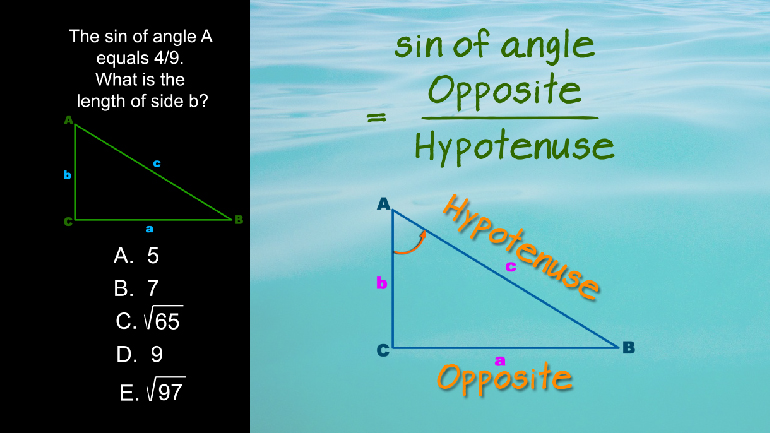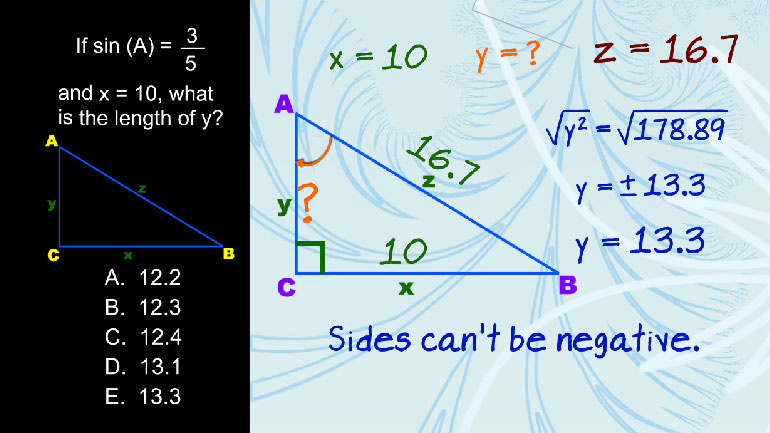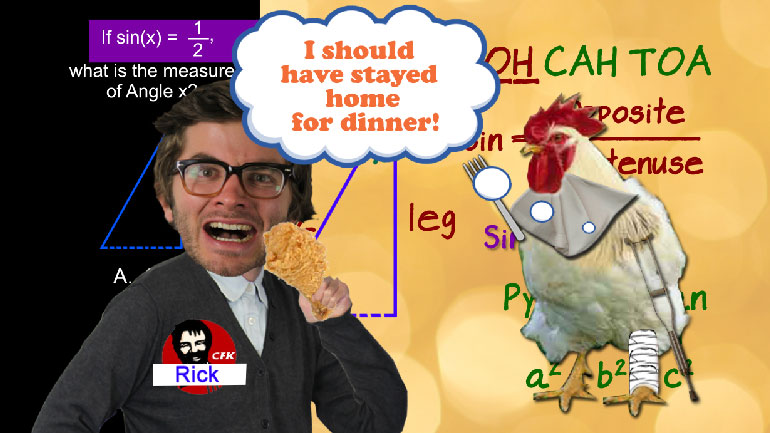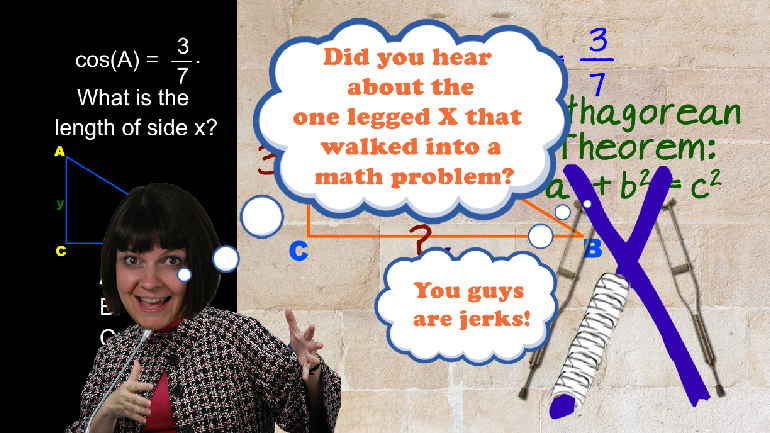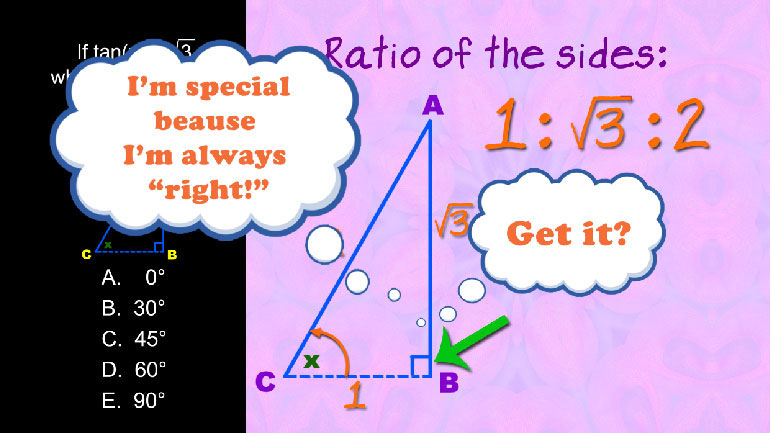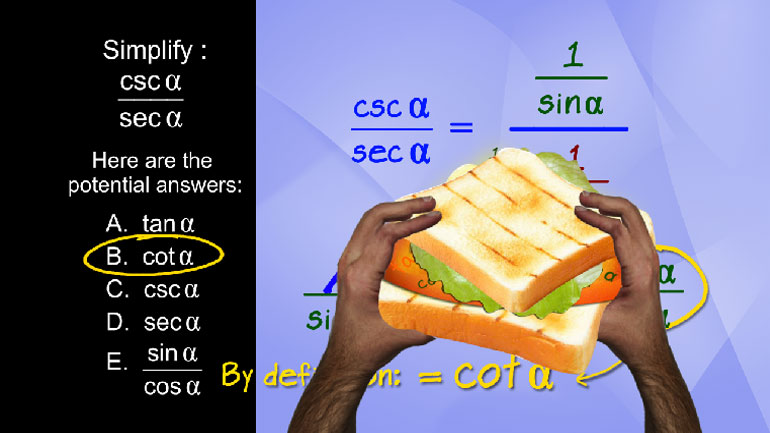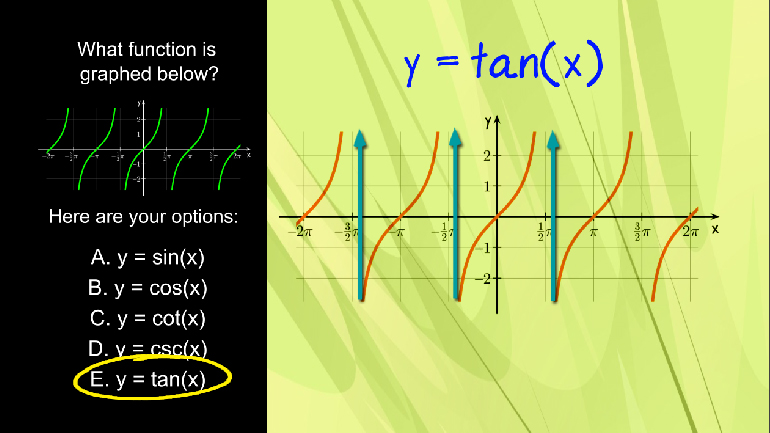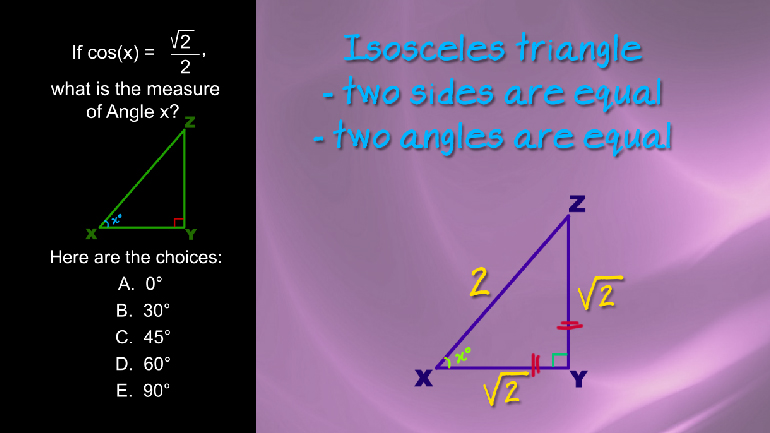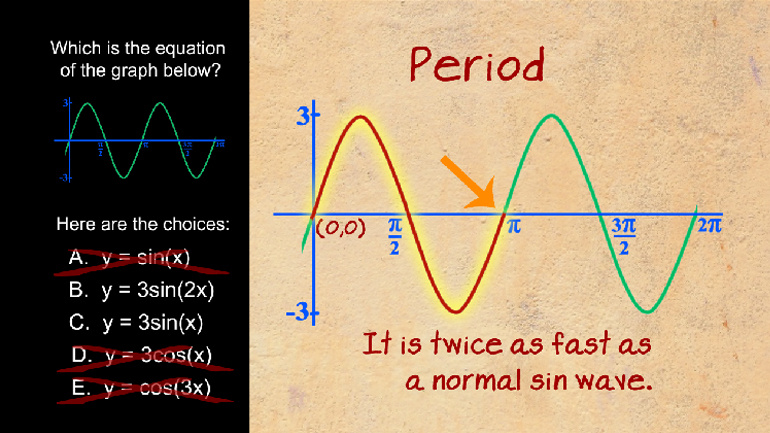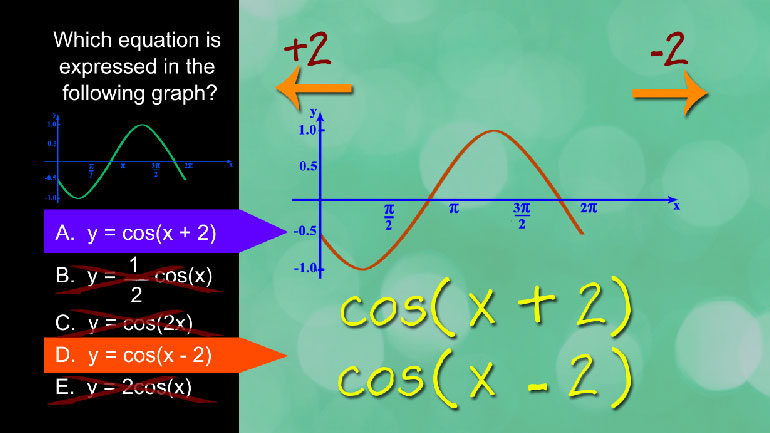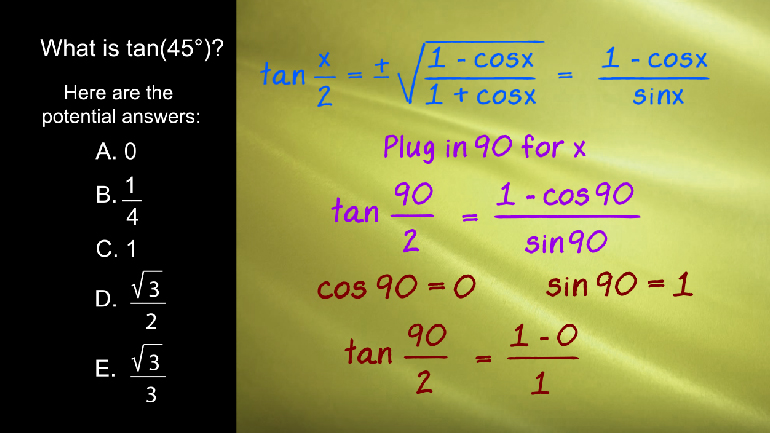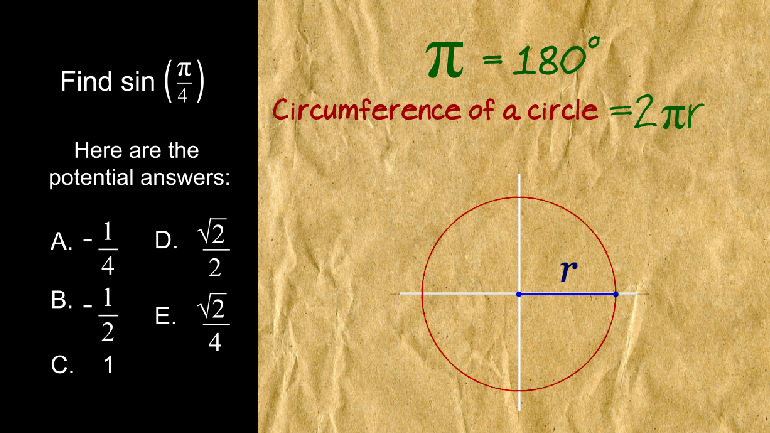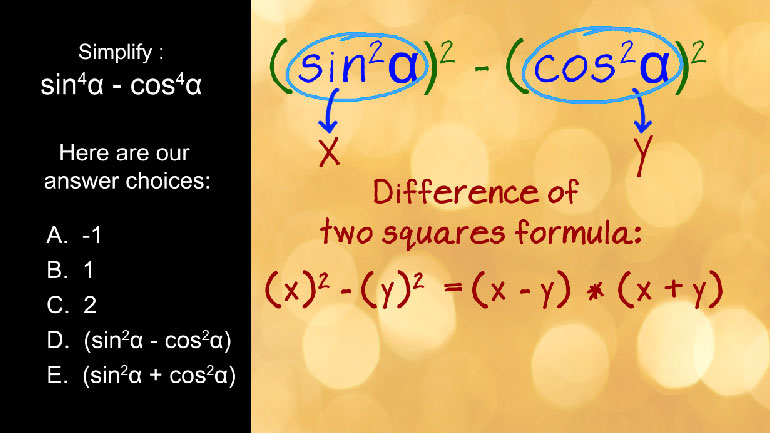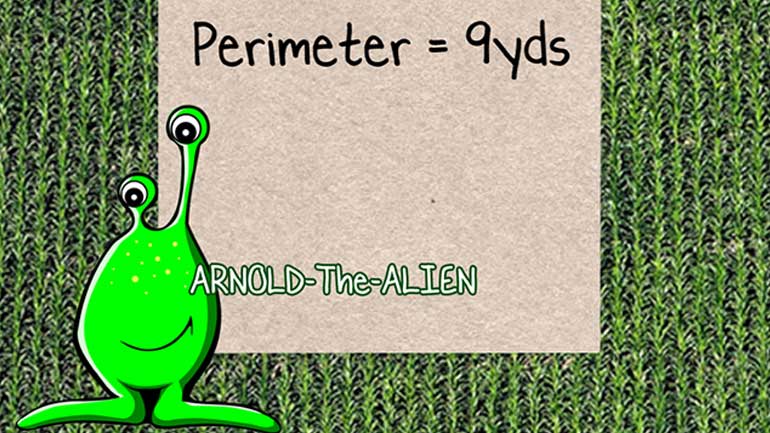ShmoopTube
Where Monty Python meets your 10th grade teacher.
Search Thousands of Shmoop Videos
Trigonometry Videos 27 videos
ACT Math: Trigonometry Drill 4, Problem 3. What is the length of side b?
ACT Math: Trigonometry Drill 3, Problem 2. What is the value for side DF on this triangle?
ACT Math: Trigonometry Drill 1, Problem 1. What is the length of y?
ACT Math 5.1 Coordinate Geometry 212 Views
Share It!
Description:
ACT Math: Coordinate Geometry Drill 5, Problem 1. Simplify the expression.
Transcript
- 00:02
Here's your shmoop du jour...
- 00:04
The origin is translated to the left three spaces and down five spaces.
- 00:09
It is then rotated 90° counterclockwise about the origin.
- 00:14
What are its new coordinates? And here are your potential answers...
- 00:21
Ok so this problem is just testing whether you can...visualize.
Full Transcript
- 00:24
The origin, remember, is point zero, zero... and it lives right here on the graph.
- 00:29
Now we translate, or scoot over... 3 spaces to the left.
- 00:33
So we go 1 2 3 and get here; and now we move it down five spaces... 1 2 3 4 5... here.
- 00:38
We need to rotate it 90 degrees COUNTER clockwise.
- 00:43
So we're gonna move 90 degrees in THIS direction...
- 00:46
Just imagine that there's a string tied from the origin to the little point here.
- 00:51
Now put a clock face on it and it's 7 o'clock.
- 00:54
We want 4 o'clock, because from here to here is a right angle... or 90 degrees.
- 00:59
If we do that, then our point now exists at 5, negative 3...
- 01:02
...and voila - the answer is B.
Related Videos
ACT Math: Plane Geometry Drill 3, Problem 1. What is the area of the trapezoid shape in the video?
ACT Math: Coordinate Geometry Drill 1, Problem 1. Which inequality is expressed by the number line?
ACT Math: Intermediate Algebra: Drill 3, Problem 1. Find the fifth number in the series.
Haven't you always wondered how much cardboard it takes to encase a trunk warmer for your pet elephant?
Want to figure out the area and perimeter of irregular shapes? Break them down into regular shapes. For example, a flower can be broken down into s...
